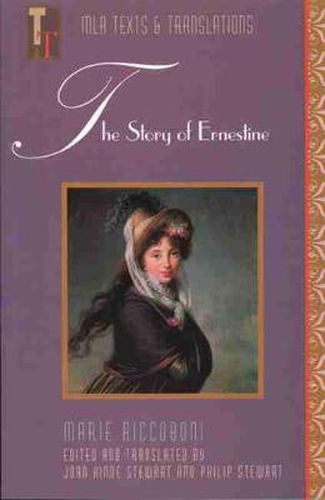Readings Newsletter
Become a Readings Member to make your shopping experience even easier.
Sign in or sign up for free!
You’re not far away from qualifying for FREE standard shipping within Australia
You’ve qualified for FREE standard shipping within Australia
The cart is loading…






Set in prerevolutionary France, The Story of Ernestine tells of the love between an innocent young woman and an aristocrat. Ernestine, German-born and orphaned, is an apprentice painter putting the finishing touches on a portrait when the marquis de Clemengis, elegant and handsome, enters the studio. Recognizing him as the subject of the portrait, she gestures for him to be seated and goes on working, looking back and forth between him and his likeness. The world-weary aristocrat is smitten.
In graceful, understated prose, Marie Riccoboni shows how her heroine learns to negotiate questions of honor and appearances and to find a precarious balance between economic security and the potentially compromising nature of male generosity. The story raises questions about sexual enlightenment and social prejudice and reexamines the links of money, reputation, and marriageability that preoccupied eighteenth-century writers.
$9.00 standard shipping within Australia
FREE standard shipping within Australia for orders over $100.00
Express & International shipping calculated at checkout
Set in prerevolutionary France, The Story of Ernestine tells of the love between an innocent young woman and an aristocrat. Ernestine, German-born and orphaned, is an apprentice painter putting the finishing touches on a portrait when the marquis de Clemengis, elegant and handsome, enters the studio. Recognizing him as the subject of the portrait, she gestures for him to be seated and goes on working, looking back and forth between him and his likeness. The world-weary aristocrat is smitten.
In graceful, understated prose, Marie Riccoboni shows how her heroine learns to negotiate questions of honor and appearances and to find a precarious balance between economic security and the potentially compromising nature of male generosity. The story raises questions about sexual enlightenment and social prejudice and reexamines the links of money, reputation, and marriageability that preoccupied eighteenth-century writers.